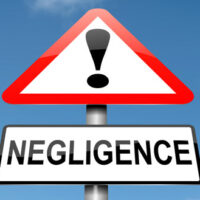Why Does Negligence Matter in Personal Injury Claims?

When you have a personal injury claim, you will likely come across the term “Negligence” quite often. Establishing negligence is crucial in a personal injury case, so your lawyer will be very interested in understanding what act of negligence the other party committed, leading to your accident and injuries. Negligence may be defined as failing to act with the level of care that a reasonably prudent person would have done under similar circumstances. Negligence can include the actions of the at-fault party, such as driving while drunk and omissions, such as disregarding safety. In this article, we shall discuss why negligence is crucial in a personal injury claim and how you can establish it.
Why Does Negligence Matter?
Here are four reasons why establishing negligence after an accident is essential.
- Demonstrating the Other Party’s Negligence Helps You File a Claim
If you cannot demonstrate that another party’s careless actions contributed to your accident, you may lack the basis for a claim. That is why when consulting a personal injury lawyer, they will focus on how the other party’s actions caused or contributed to your injuries. Merely showing that you were injured is insufficient; you must establish a clear link between the other party’s negligence and the accident to strengthen your claim.
- It Can Help You Determine the Percentage of Fault
Establishing negligence is essential in assessing how much fault the other party is for the accident. Under Florida’s modified comparative negligence rule, your compensation may be reduced if you are found partially at fault for an accident. Proving that the other party was mainly at fault is crucial, as it minimizes your share of liability and helps maximize the compensation you can recover for your injuries.
- Identifying Multiple Liable Parties
Sometimes, multiple parties may share liability for an accident. For example, in a slip-and-fall incident, you might initially find that a store failed to clean up a spill, making them liable. However, further investigation could show that the property owner neglected to maintain proper drainage, allowing water to accumulate. In such a case, examining negligence can strengthen your claim by identifying all parties involved.
- Establishing Your Right to Compensation
Lastly, establishing negligence is vital in personal injury claims because it creates a legal foundation for pursuing compensation for harm caused. By demonstrating negligence, victims can assert their right to compensation for medical expenses, lost income, pain, and other damages resulting from the accident.
How To Establish Negligence
Establishing negligence can be challenging, especially when the liable party denies responsibility. However, a lawyer can help you establish negligence using evidence such as:
- Witness Testimonies: Witnesses can provide unbiased accounts of the incident, supporting your claim
- Video or Surveillance Footage: Surveillance, dashcam or videos that you took can reveal details about the accident
- Accident Scene Investigation: Examining the scene may also help establish negligence
- Expert Witnesses: Industry experts can demonstrate how the liable party failed in their duty to exercise proper care
- Medical Records: These can help support your case for compensation by linking your injuries to the accident.
Contact a Fort Myers Personal Injury Lawyer
If you have a personal injury claim, contact our trusted Fort Myers personal injury lawyer at The Pendas Law Firm to discuss your case and protect your rights.
The Pendas Law Firm also represents clients in the Ocala, West Palm Beach, Jacksonville, Miami, Daytona Beach, Tampa, Bradenton, Orlando, Fort Lauderdale, Naples, and Melbourne areas.
Source:
leg.state.fl.us/statutes/index.cfm?App_mode=Display_Statute&URL=0700-0799/0768/Sections/0768.81.html






